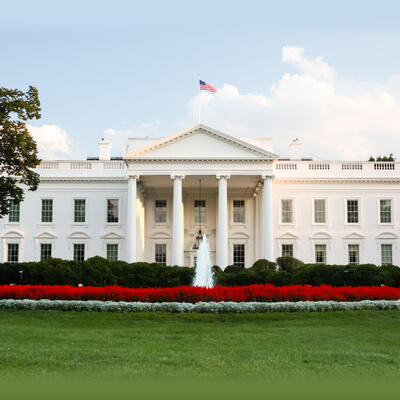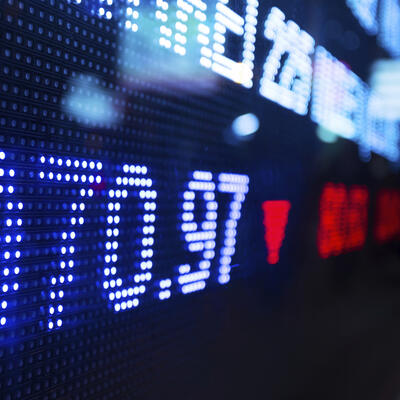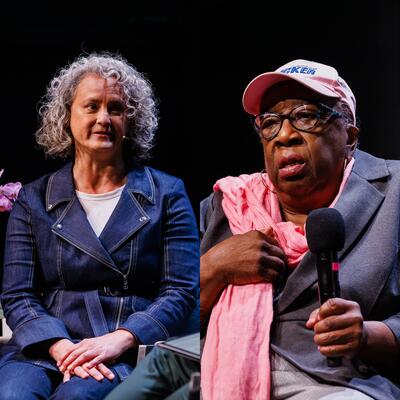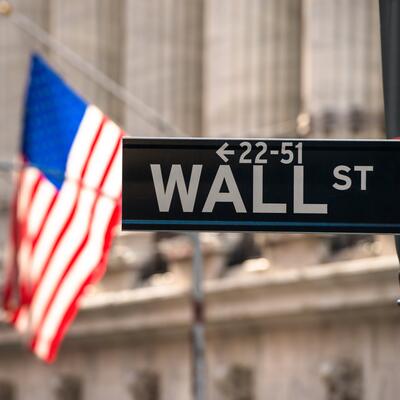
Fossil Fuels in the Ground and in Your Portfolio
Guests
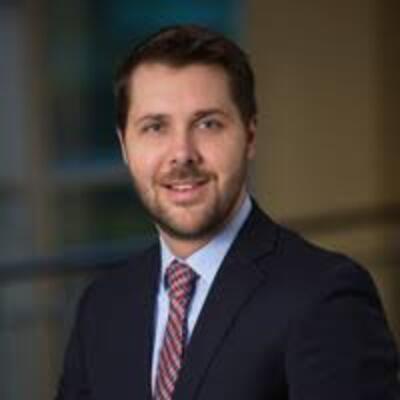
Brian Deese
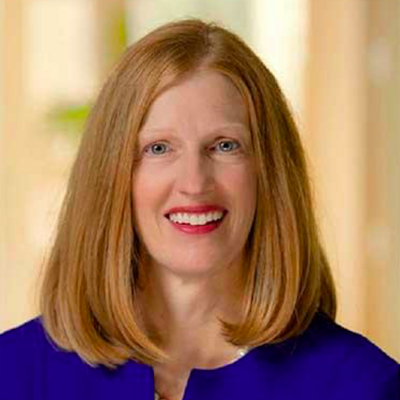
Lori Keith
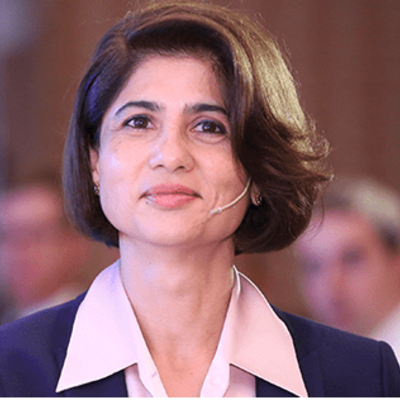
Pratima Rangarajan
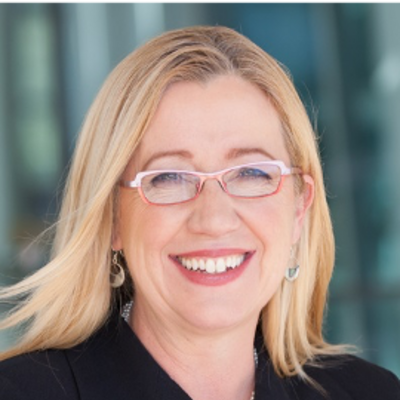
Anne Simpson
Summary
Can your nest egg finance the transition to a cleaner economy?
Universities, churches, pension funds and other organizations with $14 trillion in assets have hopped on the divest-invest bandwagon. CalPERS, the California Public Employees’ Retirement System, is one of the finance giants using the stock market as a tool for climate action.
“We need, we request, we require these companies to bring their emissions down typically by about 80% to 90%,” says Anne Simpson, CalPERS’ Director of Board Governance and Strategy. “So that the biggest emitters in the global economy have got to what’s called net zero by 2050.”
But it will take more than that to move the needle in a global economy. “We have nowhere to hide,” Simpson cautions. “If these emissions keep rising and causing global warming to increase, that’s going to have a knock-on effect on the world economy on communities right around the globe.
“And that means simply by having a green, clean portfolio isn’t going to help us with this risk unless we actually get the real economy into a green, clean economy.”
But when institutional investors divest from fossil fuel companies, does it make a difference, or is the impact merely symbolic? Some say it’s better to keep your stock and your influence, using investor dollars to encourage change from within. Pratima Rangarajan left her job in the renewable energy industry to head up the Oil and Gas Climate Initiative, an investment fund backed by some of the world's largest oil companies including BP, Chevron, and ExxonMobil. And to, as she puts it, “follow the carbon.”
“That’s what we do in our business; we follow the carbon,” Rangarajan says. “Where there’s carbon it’s our job to figure out to go invest in solutions to mitigate it and then figure out how to scale it up.”
“The name of the game here is change,” Simpson agrees. “We can’t sit and be the victim of the course of events. Even if we could actually construct a portfolio that looked neat and tidy and green, we’ve actually have got to be in the business of transition.”
What about those of us who aren’t managing billions in assets? What information is out there for the lone investor who wants to practice green investing?
“Full transparency I think is really important,” advises Lori Keith of Parnassus Investments. She suggests researching deeply into mutual funds by reading up on their websites, noting their positions on climate change and following sustainability reports.
“There are a lot of firms that will say check the box that says we’re doing environmental social governance investing. But when you look behind the scenes and see what companies they’re investing in, most of those wouldn’t even meet the standards as it relates to environmental social governance standing.
“So I think it’s really important to understand what you own.”
This program is generously underwritten by Bank of the West. Read more about their sustainable policies here.
Related Links:
FossilFreeFunds.org
The Investor Agenda
Parnassus Investments
Oil and Gas Climate Initiative
This program was recorded via video on April 16, 2020.
Full Transcript
Greg Dalton: This is Climate One. On today’s program - the stock market as a tool for climate action.
Anne Simpson: We need, we request, we require these companies to bring their emissions down typically be about 80% to 90%. So that the biggest emitters in the global economy have got to what’s called net zero by 2050. [:15]
Greg Dalton: When institutional investors divest from fossil fuel companies, does it make a difference, or is the impact merely symbolic? Some say it’s better to keep your stock and your influence, using investor dollars to encourage change from within.
Pratima Rangarajan: That’s what we do in our business; we follow the carbon. Where there’s carbon it’s our job to figure out to go invest in solutions to mitigate it and then figure out how to scale it up.[:11]
Greg Dalton: Fossil fuels in the ground and in your portfolio. Up next on Climate One.
---
Greg Dalton: Can your nest egg finance the transition to a cleaner economy?
Climate One conversations feature oil companies and environmentalists, Republicans and Democrats, the exciting and the scary aspects of the climate challenge. I’m Greg Dalton. Today’s program was produced with the generous support of Bank of the West.
Universities, churches, pension funds and other organizations with $14 trillion in assets have hopped on the divest-invest bandwagon. But it will take more than that to move the needle in a global economy.
Anne Simpson: If these emissions keep rising and causing global warming to increase, that’s going to have a knock-on effect on the world economy on communities right around the globe. And that means simply by having a green, clean portfolio isn’t going to help us with this risk unless we actually get the real economy into a green, clean economy.
Greg Dalton: And while we may hope that our retirement funds can decarbonize the economy, not every country has enough energy options to use divestment as a tool.
Pratima Rangarajan: I don’t hear about it when I’m sitting on a panel in India. They ask please can we have gas power. Gas is too expensive for us, but the coal is choking the kids.
Greg Dalton: On today’s program - sustainable investing in a financially volatile world. How can we use our portfolios to promote the values we care about? My guests and I are coming to you from our homes via the internet. All four of them are involved in handling people’s money - maybe even yours.
Brian Deese is Global Head of Sustainable Investing at BlackRock, the world's largest asset manager. Lori Keith is a Portfolio Manager with Parnassus Investments, a leader in the field of socially responsible investments, or SRIs. Pratima Rangarajan [PRAH-tee-mah ran-GAHR-ah-jahn] is CEO of the Oil and Gas Climate Initiative, an investment fund backed by some of the world's largest oil companies including BP, Chevron, and ExxonMobil.
And Anne Simpson is Director of Board Governance & Strategy at CalPERS, the California Public Employees’ Retirement System. It’s the largest pension fund in the United States with more than $300 billion in assets.
With few cars on the roads or planes in the air, the world is awash in oil with few buyers. Oil prices hit historic lows and even briefly went negative. How does that affect the transition away from fossil fuels for institutional investors such as CalPERS?
PROGRAM PART 1
Anne Simpson: We are absolutely focused on the need for this transition so that we get global warming under control. If we don't do that, we’re going to be facing a wave of climate emergencies which are going to require a similar level of response. And the longer we leave it the more difficult it is. In other words, what we say is, you know, there’s a stopping distance here. It’s easier to just slow down when you can do it reasonably safely than having to slam on the brakes right before you go over a cliff.
So, you know, our view of this is the way we need to work; our theory of change if you like is that investors like CalPERS, we are owners, the co-owners of the companies that are producing these emissions. Our fiduciary responsibility is to make sure we’ve got the safety and soundness in this portfolio. So we need, we request, we require these companies to bring their emissions down typically be about 80% to 90%. So that the biggest emitters in the global economy have got to what’s called net zero by 2050. And although we’re dealing with an immediate emergency we can't, because the house is on fire with one issue, we can’t avoid paying attention to other risks which are going to undermine returns in the short, medium and long term.
Greg Dalton: Brian Deese, has the coronavirus crisis changed attention away from the longer seemingly less acute or urgent climate situation for investors? The market drop is so dramatic has it taken attention away from climate?
Brian Deese: Well look, there’s a set of immediate and urgent fiduciary elements particularly when you see the kind of market dislocation and liquidity issues that we saw in the month of March. But if you step back, I think for us, we came into this year and this pandemic crisis with similar to what Anne just described, that climate risk is investment risk. And more generally that we were on the front edge of a larger decade-old structural shift in investor preferences that really changes and up ends a lot of how traditional financial models intrusion of financial analysis assesses sustainability work. And as we look at what's happening in the current environment it actually gives us a very interesting test case to try to understand some of these convictions and some of these hypotheses that we’ve operated with.
So just two quick ones. One is, you know, our perspective at BlackRock has been that integrated sustainability into portfolios builds a component of resilience. Which means that you should see better performance in risk off environments where we have a unique and unprecedented moment here. And what we’ve seen is if you look at benchmarks, you know, 24, 26 of the major ESG benchmarks have outperformed their traditional market cap benchmark. If you look at our portfolios the sustainably integrated portfolios have really held up quite impressively during this crisis.
And then the other element is around, you know, there's been a sense of if there was a severe market downturn would investors run away from sustainability because they have to focus on other things. And if you look at flows into sustainable strategies in fact, in the first quarter you saw record flows. And flows uncorrelated with the kind of flight to safety and outflows in other market categories. So I think from our perspective, if you just look at what's happening in the market we’re learning interesting things but mostly reinforcing some of our, I’d say the convictions about the ways in which integrated sustainability can actually improve a fiduciary orientation around investing, number one.
And number two, as we come out of this crisis, I believe that we are going to see key elements of sustainability rise in importance for companies and for governments and regulators as they grapple with the longer-term implications of this crisis. A lot more to say about that but I think suffice to say that our perspective and our conviction around the importance of sustainability coming into this crisis is reinforced by what we’re seeing. And I think it's going to likely become an even more central part of the conversation going forward.
Greg Dalton: Lori Keith, your firm Parnassus has been devoted to that idea that Brian just mentioned. That sort of being good corporate citizens actually drives excellent or perhaps superior financial results. Your take on how this downturn in the market is affecting the turn toward cleaner energy, is it helping or hurting or too early to tell?
Lori Keith: We think there’s a very structural shift. We’re in an era of decarbonization right now and we think this is a multi-decade trend as companies continue to decarbonize. And we think, certainly, there's going to be in this immediate environment there may be a bit of a slowdown. Certainly, we’re seeing some disruptions right now for instance in supply chains for solar panels. Also in terms of implementation of those panels right obviously with everyone shelter in place right now there will be some temporary delays. But that by no means impacts the long term strategy.
When we look at the significant risk for environmental climate change risk we think companies certainly at the state level are taking very much a proactive role in pushing forward renewable standards. We’re starting to see that broadly across many states and certainly in Europe they’ve really been on the forefront of this. So nothing really derails that story and for us as ambassadors, you know, it’s really been a source of ALPHA to find and invest in a collection of companies that really best in class around managing their environmental social and certainly their governance factors.
Greg Dalton: And Alpha being additional return above additional risk.
Greg Dalton: Pratima Rangarajan, you were in the renewable energy business. I’m curious why you left renewables and went to go work for a group of, an investment fund run by the largest oil companies in the world and what is that fund doing?
Pratima Rangarajan: Thank you, Greg. Yes, I was in renewables for more than 10 years before I took this role. I’m a big believer that renewables has revolutionized the way we decarbonize the power sector. But, you know, a few years ago I decided to just work on climate directly. And so I started studying the data on carbon emissions. And I took home two important learnings. At that time we had less than two decades just like we have now in our carbon budget to stay under 2 degrees. And with renewables at less than 10% of the energy mix it just seemed to me that we didn't have enough time to scale renewables to cover the rest of the 90% not to mention the growth. So we have to work on the rest of 90%, you know. As I told my kids, I have to stop working the chocolate chips and go work on the cookies as well.
The second realization I came to is that there are substantial sources of carbon that are emitted in this world that are not about energy. And here I can just take cement as an example we all know and love. It’s responsible for about 7 billion tons of carbon dioxide every year. It would be the third largest country if it was a country. And less than half of cement emissions come from the energy piece of cement. The rest of it is really chemistry because we take carbon emissions material and make it into cement. So it actually just emits carbon dioxide.
So when you look at both of those, I realized that I was really working on a small-piece of the pie. I wanted to work on the overall climate challenge which is the carbon challenge. So one of the pleasures of my job is that I can just look this from the lens of following the carbon. That’s what we do in our business we follow the carbon. Where there’s carbon it’s our job to figure out to go invest in solutions to mitigate it and then figure out how to scale it up. So I’m following the carbon, Greg.
Greg Dalton: Anne Simpson, we have a question from Cynthia Kaufman on YouTube who says, “How can CalPERS justify losing our money in order to engage with fossil fuel companies that are still fighting the transition to a just green economy?” It sounds like she may be a CalPERS member. So Anne Simpson, CalPERS approach.
Anne Simpson: Yeah, thank you very much. The question is what you’re trying to do. So at the moment the world economy is about 80% dependent on fossil fuels for energy. So what we need to do is get that energy sector changed to a situation where the emissions have come down as we said by about 80%, 90% by 2050 is what we need. And I do want to fully agree with Pratima that it’s not just oil, gas. The message here. On the Climate Action 100+ list we have Heidelberg Cement the largest cement company in the private sector in the world. They are one of the companies that have committed to bring their emissions down to be in line with the Paris agreement. But also we have utilities, we have companies like Nestle, Pepsi, companies with a very long supply chain in agriculture. So we need to be open and honest about where the emissions are coming from. They’re coming from agriculture, they're coming from chemicals,they’re not just coming from the fossil fuel sector.
Now, specifically on this question so what do you do about that. Well, certainly for some investors and Parnassus is an example choosing to instruct the portfolio of other companies that make sense. But for us, we are still exposed to the risks of those emissions. We have nowhere to hide. If these emissions keep rising and causing global warming to increase, that’s going to have knockon effect on the world economy on communities’ right around the globe. And that means simply by having a green, clean portfolio isn’t going to help us with this risk unless we actually get the real economy into a green, clean economy.
So the reason that we’ve taken on these biggest emitters what we’re calling the systemically important emitters, is not they’re easy companies to deal with. There are strategy as to line up with the Paris goals. If we don’t do that we can have a neat, tidy green portfolio and the economy can be collapsing around our ears. So obviously CalPERS is very big but we can't do this on our own. What we've done with Climate Action 100 is team up with other investors. BlackRock recently joined which we’re delighted about. But there are investors that we are working with now have something in there over $40 trillion that they're responsible for. And because of that we’re starting to see big change at these companies, which are at the heart of this energy transition. Today, Shell making its announcement, and if you go to the Climate Action 100+ website you'll see utilities chemicals companies, cement companies, companies in the agricultural sector moving their strategy to be in line with Paris. And ultimately, that's what’s going to protect us from this risk.
I want to add one other thing quickly. Which is that when we’re thinking about climate change we can’t just think about this as some issue to do with science and finance. We’ve also got to start looking at the people who were at the heart of the impact that climate change is bringing. So something which I think we’re learning in this pandemic is to put people at the center of what we’re thinking about.
So at CalPERS we call this human capital. It’s financial capital, human capital, natural capital. And in our engagement with companies and our work at the SEC we’re saying that companies need to be reporting on issues like health and safety, employee engagement, workforce turnover. Because if we don’t take care of people in the process of this transition we simply won’t achieve the consensus from the public, the private sector and from civil society. So really, this is, the name of the game here is change. We’re too big to walk away. And even if we did walk away, we’re still gonna get hit by what’s coming down. We’ve actually got to change the course of events. We can’t sit and be the victim of the course of events. Even if we’re -- so big we could actually construct a portfolio that looked neat and tidy and green. We’ve actually have got to be in the business of transition.
---
Greg Dalton: You’re listening to a Climate One conversation about using our investment portfolios for change. Coming up, equal opportunity - why it’s important to make sure we’re lifting all boats.
Anne Simpson: Retirement security is something that should be for everyone. We cannot have an island of comfort floating in a sea of misery.
Greg Dalton: That’s up next, when Climate One continues.
---
Greg Dalton: This is Climate One. I’m Greg Dalton, and we’re talking about finances and fossil fuels. My guests are Anne Simpson of CalPers, Lori Keith of Parnassus Investments, Pratima Rangarajan of the Oil and Gas Climate Initiative, and Brian Deese,from BlackRock.
When it comes to sustainable investing, the conversation usually centers around divestment - using the stick, not the carrot. Brian Deese of BlackRock believes that framework is too simplistic, for a couple of reasons.
PROGRAM PART 2
Brian Deese: The first is that I think we come at this from the perspective of risk. And investment risk in trying to fully understand and reflect the risks that we’re all talking about here into investment processes. We did announce earlier this year that on our active portfolios, which means the portfolios where we have discretion when we’re managing our client's assets, we did announce that on that portion of where we have discretion we would be exiting all of our exposures to thermal coal producers because that was an area where we identified the risk the business model risk itself is pronounced toward that.
But as we look more broadly and we look at these risks, I would make two points. One is, we’re very focused on this issue of transition that Anne just outlined in two respects. The first is, trying to understand which companies and which business models today are the most well-prepared to actually navigate effectively and in fact effectively take advantage of what we believe will be an accelerated transition toward a low carbon economy. And if you take that perspective, what it allows you to do is not look for example at the entire energy sector or all companies that are involved in traditional energy and look at them sort of monolithically. But instead say, some of those companies are making significant changes to their business model. Taking a lot of their current R&D and cap ex and investigating in different ways, and some of them are. And from a risk perspective, investment perspective those difference is really important when you’re trying to think about which companies were actually best positioned in the future. And we use that not only in terms of allocating risk capital but also as Anne said, engaging with companies. Where we own equity on those companies on behalf of our clients and that as Anne referenced is connected to the work of Climate Action 100 that we are now supportive of and partnering.
The last point I would make though that is connected with transition is that ultimately, the pace of the global low carbon transition will be dictated by the ambition and the effectiveness of government policy globally. And as somebody who spent a lot of time working to and getting the Paris agreement agreed to and then entered into force in 2015, 2016, I think you look at that framework and you see in it the potential for countries to increasingly increase the ambition of their national policies, their nationally determined commitments in a way that would signal long term trajectory of how the economy will decarbonize that would then accelerate massive transformations of capital and shifting of private capital. Obviously the state of global policy is not where it needs to be. I think that we will see an acceleration but the more that that ends up happening too late and in an uncoordinated way that doesn’t provide those long-term signals. But more challenging it’s going to be for capital to actually move and accelerate this process.
Greg Dalton: Pratima, I wanna ask you the whole divestment conversation focuses on publicly traded oil companies, people who know the markets deeply. Most of the hydrocarbon reserves are actually held by state owned oil companies that shareholders divestment can’t get at, China, Saudi Arabia, etc. So actually you have a window into that world because a couple of state owned or semi-state owned oil companies for Brazil and China are involved in your work. So tell us what window you have into the big part of the oil market that is not talked about in this whole divestment conversation.
Pratima Rangarajan: That’s actually right, Greg. I think divestment has done a good job in raising public awareness about climate challenge and that is important. But in terms of actual climate impact we don't really see it on the emissions. And that’s because it's not really effective, divestment isn’t such an effective tool where other forms of investment or other forms of capital are available. It’s not a great tool when you think about nationally driven, as you said, oil companies which is where a lot of this is. And it looks at all fossil fuels as the same, whereas if you really when we need to solve real problems, we have to be contextual. And we have to look at what is countries what regions are capable of and what they need as well. A one-size-fits-all approach is great on paper. But in reality, one cannot use the same approach in Europe and in Africa. In Africa 57% of the population doesn’t even have access to basic forms of energy. It just isn’t the same story. And as Brian said and Anne said we cannot forget people in this. It has to be equitable and a just transition. It cannot just be financial.
So, if you look for something that’s really a much stronger potent tool in getting to the core -- in answering the climate charge, I absolutely agree with Brian, it is policy. Policy can drive us to scale a lot faster and we can actually hit the carbon challenge in the timeframe we have. And the first thing there is to put a value on carbon. Two centuries of economic history tell us that we will not change behaviors unless we value what we are talking about and we need a value on carbon. That’s just plain and simple. And we need to put all our political will behind this so all our economic and political.
From an investor viewpoint, I think it is much more effective to do what Anne and Brian were talking about. Which is work with the companies, work with entities, work with regions. To reward companies that are ahead of the curve. And that’s really important. We’re seeing with divestment a regime is that there are some real regions of need where we have to take a much more nuanced view. And so we’re making no progress into making substantive progress. Because all-or-nothing is not a very good option everywhere.
Greg Dalton: Let me jump in there on the political will. The companies that have invested in your fund BP, Chevron, Exxon Mobil and some European companies are also, you know, that's like an interesting technology bet and they're trying to learn about the future and make some very interesting investments that people wouldn’t expect oil companies to invest in. And you talk about we need political will; at the same time those companies with the exception of BP which just pulled out from American Petroleum Institute they say publicly we need a price, you say value on carbon, because they don’t want to get involved in carbon tax or cap and trade. But then they also support the American Petroleum Institute, which does everything it can and spends millions of dollars lobbying in Congress to prevent a price on carbon and to oppose legislation to do the kinds of things that they publicly support. Help us understand that there's an inside game and an outside game. And corporations are not monoliths and there's different power centers and conflicting interests. But since you mentioned political will, will the industry use its political muscle?
Anne Simpson: I have a comment on that too.
Pratima Rangarajan: Anne, would you like to go first?
Anne Simpson: I mean only because you are receiving if you like venture capital funds. And what CalPERS and BlackRock and others are doing with the companies is getting this political lobbying issue dealt with. So, we’re calling for first of all with these companies’ governance of whole. It means the board takes responsibility we hold them accountable through our votes but it also means lining up executive pay and rewards with the new goals of reducing. And we do not want shareholder money being used for lobbying purposes that undermines the commitment that these companies have made to supporting Paris. So, you’ll see the companies that you’ve mentioned including Shell including BP including others which have agreed to review, revise and pull out of trade associations that are not lined up to support this. But for all those of you looking at the proxy season, you'll see there's a whole string of share owner proposals coming to other companies calling upon them to do the same thing. In other words what you say and what you do with shareholder money has got to line up.
So that’s one thing the owners have got to get this all in check. Secondly, I just want to flag that many of the investors who are involved in this work also are part of initiative called the Investor Agenda. Which is being coordinated by the same investor networks, PRIs, series, IIGCC in Europe and their counterparts in Asia and Australia. What that group is doing is focusing on a whole range of issues in the policy framework which are going to make all the difference. Because Pratima is right, this can’t be done just to engagement. So our strategy at CalPERS is three part. It’s engagement, it’s advocacy with policy makers where carbon pricing mandatory climate risk reporting are just two examples of what’s on that measure. And then thirdly, integration. And that’s where we take what we’re learning about the transition not just to manage risk but also to find the opportunities. So you’ll see even in our portfolio we have private markets something like 12 billion invested very productively in the broad theme of climate solutions. So this is not just a one-way street. This transition is opening up lot of opportunity as well.
Greg Dalton: If you’re just joining us we’re talking at Climate One today with Brian Deese, Global Head of Sustainable Investing at BlackRock, the world's largest asset manager. Lori Keith, Portfolio Manager at Parnassus Investments and Pratima Rangarajan, CEO of the Oil and Gas Climate Initiative, an investment fund backed by some of the world's largest oil companies. And Anne Simpson, Director of Board Governance and Strategy at CalPERS the California Public Employees’ Retirement System the largest pension fund in the United States.
I’d like to go to our lightning round and ask some true or false questions for our guests.
Anne Simpson. True or false, divestment from fossil fuels is a feel-good gesture that has zero financial impact on the targeted company?
Anne Simpson: Well you said it. The question is do you want to look good or do you want to roll your sleeves up and get involved in this messy business of change. I do want for the record though to say that CalPERS several years ago did sell its holdings in companies with the majority of revenues from thermal coal. However, that was after engagement process in which we, you know, decided to keep several which were involved in the transition. But the others we didn’t see the transition opportunity. So just, you know, investment decisions have to be kept under close attention. Thank you.
Greg Dalton: Thermal coal is kind of easy to get out of. Once an industry is kind of dying then a lot of people head to the doors. Pratima. True or false, battery storage is hot and sexy?
Pratima Rangarajan: Absolutely.
True or false. Anne Simpson, picking individual stocks is a fool’s errand?
Anne Simpson: Well, a fool and his money are soon parted, as has been said. Stock pickers have not been able to beat the market in the downsize, you know. When you’re outsized you cannot like a small investor construct an active portfolio. No, it’s a fool’s game. Agreed.
Greg Dalton: True or false. Pratima, mining lithium for batteries is a clean and sustainable enterprise?
Pratima Rangarajan: It can be but what lessons have we learned from history. Let’s make sure that BlackRock and CalPERS are keeping all the miners clean and making sure that they are doing this in a sustainable way for the future.
Greg Dalton: True or false. Anne Simpson, before you move from the U.K. to California you thought everyone here wore tie-dye clothes and had flowers in their hair.
Anne Simpson: Yeah, it was such a disappointment. I thought I’d be tie-dying my daytime suit in the bath. Yeah, true.
Greg Dalton: Also for Anne, today they are once again wearing tie-dye shirts and not taking showers as often.
Anne Simpson: In California I’m sure it's all very good for saving water.
Greg Dalton: There you go. True or false. Brian Deese, pension funds have returned targets that are highly unrealistic?
Brian Deese: I think there’s spectrum of pension funds, a spectrum of return targets and some of them are unrealistic and some of them are valuable resource.
Greg Dalton: Alright. Thank you for getting through the lightning round. One of the more memorable and fun parts of Climate One.
I do wanna talk about the clean side we’ve been talking about the dirty side. Let’s talk about its divest and invest. Lori Keith, we’ve seen oil companies move into renewables I've been doing this long enough that it’s kind of like the hokey pokey. They put one toe in they pull it out, one toe in. Is there a meaningful investment now as a measure percentage of their overall capital expenditures or cap ex that fossil fuel companies are going toward cleaner energy or is it just kind of greenwashing and marketing? Is there real money being put by fossil fuel companies to alternative?
Lori Keith: As investors certainly in the mid-cap space those finances mid-cap we’re not seeing that certainly across, you know, many of the shale independence in North America. We’re not seeing any movement towards renewables at this point. All of the capital expenditures are really going back into the ground to try to enhance recoveries in those existing shale wells or for additional acquisitions. And so we think there has yet to be an appetite to really shift away from fossil fuel and shale development by many of the players. Certainly there are one offs internationally and some of the very large players that are starting that route. But we think it’s gonna be a long road, frankly.
And in the meantime we think there’s gonna be significant risk to many of the players particularly when we’re looking at commodity prices today, you know, certainly $20 per barrel on the West Texas intermediate today's price. At that level certainly, yeah, the Kansas City put out a projection that 40% of energy companies in North America potentially will be bankrupt within one year at this commodity price. Many of those being smaller players but we think yeah there’s very significant risk. And so as an ambassador you’re really having to bet on an increase in commodity price for these stocks to work and the economics simply aren’t there.
Greg Dalton: Pratima, Lori Keith talked about the mid-range companies. You deal with like the super majors, the global giants. We have a question from Lala on YouTube. “Will the oil and gas companies invest more or less in clean tech in 20 and ’21?” So what are you seeing I understand your fund is separate from the companies they all put some money in, it’s a separate entity. But does that trickle into larger investments by the oil and gas companies in some of the clean technologies that they might discover in your fund or learn about?
Pratima Rangarajan: Yeah, absolutely. So two points. One is that the money they put in our company is separate from what they already do. So if we look at Equinor they do offshore wind. Everyone of the companies has their own portfolio of clean technologies.
Greg Dalton: But to be fair, it’s a small part of their overall expenditure, right. I mean it’s 1%, 2% of what they spent.
Pratima Rangarajan: It is a small part but, you know, when you look at what it actually takes the cap ex that takes to go drilling for oil is not the same cap ex when you set up a wind farm. And I come from the wind side of the base, and so we just don’t run so cap ex which in general. And I think you’re gonna see the changes you’re gonna see the changes in the business models because that’s what we need. The world is gonna need it, COVID is going to, I think in some ways increase the pace because we’re going to have recovery plans. And it’s always good and sometimes crisis makes you look at things very differently. We’re not gonna come back to the same place.
But in terms of our fund, the billion plus dollars that we have in our fund, obviously I commend the companies to give us that as an investment capital. But in addition to being investment capital, they also co-invest with us in some of our investments. They actually, but most importantly they are collaborators. They take our innovations they pilot them, they test them and they are actually deploying them at scale right now. So that’s really important because we need to shorten the time for commercialization, time for impact. And then when we also take on some difficult projects that’s when they become really, really important partners for us. They take it over from us.
So in the U.K. we have a carbon capture utilization storage project. It’s very ambitious, C-I grew it over the last three years. And the goal is to decarbonize the entire northeast of England. And this project grew out of our capabilities as a small investment fund. And has now being taken on by five of our member courtesy of member conference. And they are going to take it out to operationalize. Now this is not a typical type of project and this is really important for couple reasons. One, it’s not a typical project that they would normally invest in. They’re doing this in order to demonstrate that we can decarbonize industrials across an entire region. When they do this, what’s the most important thing is that they will be able to transition the technologies the resources the knowledge they have into the industrial sector and allow for the decarbonization of the neighboring sector. So these are all the ways we work with them. So yes, the impact is much broader than what we do as a fund. We’re just the catalyst.
---
Greg Dalton: You're listening to a conversation about climate change and the stock market. This is Climate One. Coming up -- when it comes to socially responsible investing, let the buyer beware:
Lori Keith: There are a lot of firms that will say check the box, say we’re doing environmental social governance investing. But when you look behind the scenes and see what companies they’re investing in, most of those wouldn’t even meet the standards.
Greg Dalton: That’s up next, when Climate One continues.
---
Greg Dalton: This is Climate One. I’m Greg Dalton. We’re talking about investing for change. My guests and I are talking from our homes via the internet. I’m speaking with Pratima Rangarajan, of the Oil and Gas Climate Initiative, Anne Simpson of CalPERS, Brian Deese of BlackRock and Lori Keith of Parnassus Investments.
We invited our listeners to submit questions during the livestream. This one came from John, asking for help finding sustainable funds and companies. What resources are out there for the individual investor who wants to go green? Lori Keith has some suggestions.
PROGRAM PART 3
Lori Keith: First of all I would suggest really looking at the spectrum of what the offerings are. Certainly going directly to websites offered by individual mutual funds as an example, you can really get a sense what is it that they own. Because I think it’s really important as an investor to understand what are those companies that are truly being invested in, how are they disclosing for instance their proxy policy. How are they voting as it relates to issues around climate change. Full transparency I think is really important. And so I would definitely encourage one to go out and look at the information that’s provided on those websites. See if there is a report any sort of shareholder sustainability reporting that is provided on annual basis. Engagement reports see what type of engagements that firms are involved with for us as investors at Parnassus mean we’re very actively involved in engagement efforts with a number of our investment holdings. And we report out on what we’re doing and what stage does engagement efforts are in.
So I think that can be very helpful but I do think it’s really important to understand because there are a lot of firms that will say check the box, say we’re doing environmental social governance investing. But when you look behind the scenes and see what companies they’re investing in, most of those wouldn’t even meet the standards as it relates to environmental social governance standing. So I think it’s really important to understand what you own. And I would definitely recommend going directly to websites and look at the shareholder reports. Certainly, you know, for myself I just authored the recent quarterly report that will be coming out shortly. We do that every quarter and you could read through those reports in plain English and see what the strategies are and what they’re investing in. And I think that's really important.
Greg Dalton: Sometimes they are in plain English. Another useful tool is fossil free funds.org. Really useful tool you can plug in the ticker for any fund and you can see there a lot of the funds that pretend to be fossil free or low carbon there's a lot of carbon in there. Brian Deese.
Brian Deese: Yeah, I just want to pick up on this and say something that Anne said earlier about, you know, we've learned from decades of financial research that the most important decision that an individual investor makes is actually at the portfolio construction level. And one of the things that’s really exciting about the space that we’re in now is where as a decade ago it was much more that actually people's choices were constrained to a limited number of sustainable funds that were in one sector. So just equity, not fixed income maybe it took a lot of risk which might be appropriate for somebody who has a very significant risk appetite but not build a whole portfolio. Now there are a wealth of building block exposures, low cost, straightforward that an investor can start. So I would say the other thing you could do is start whether it’s with your financial advisor or websites like you’re saying and start at the initial question. If you’re building a 60/40 portfolio how can you think about embedding sustainability in the core of what you're doing. Not just in thinking about having a satellite exposure to 5% of the money in your portfolio to go into a NSRI fund. That’s a really exciting change and, you know, we’re seeing a democratization of access to underlying building blocks.
Now to your point, we need to look at what below the headline label, you need to understand particularly if you're getting screened funds what they screen out. You know, I would say in fairness there is no one unified vision the definition of fossil fuel. Every company including renewable energy companies consumes energy of one form or another. But with that said, the number of choices and the quality of products has exploded recently. And I would just encourage think about that question when you start building your portfolio, not just when you’re at the end and you said I wanna get some exposure to an SRI fund.
Greg Dalton: If you’re just joining us we’re talking about investing in fossil fuels and cleaner forms of energy, at Climate One. I’m Greg Dalton. My guests are Brian Deese, Global Head of Sustainable Investing at BlackRock. Lori Keith, Portfolio Manager at Parnassus Investments. Pratima Rangarajan, CEO of the Oil and Gas Climate Initiative an investment fund backed by some of the world's largest oil companies. And Anne Simpson, Director of board Governance & Strategy at CalPERS, the California Public and Employees’ Retirement System, the largest pension fund in the United States.
Greg Dalton: And as we wrap up I’m hearing this conversation thinking about half of Americans don't have participation in the market. We’re in a time of severe economic distress where people have difficulty paying rents people -- unemployment is in the double digits. So I want to end and think about asking you something you’re grateful for and maybe evoke some empathy for people who feel frankly excluded by this conversation we’re having because they don't have access to the markets and retirement plans. So many Americans and others live paycheck to paycheck. Let’s start with Anne Simpson.
Anne Simpson: Thanks very much. Retirement security is something that should be for everyone. We cannot have you know an island of comfort floating in a sea of misery. CalPERS relies for its own members we have nearly 2 million members in our pension fund. But it’s absolutely good for the capital markets to have this type of long-term savings it’s absolutely right for our members that they have dignity in retirement. And that should be something that all communities can rely on. It shouldn’t be viewed as a privilege for a few. It’s good for the economy it’s good for communities and it’s most definitely good for people in their vulnerable years. So CalPERS is a great supporter of retirement security for all that’s essential.
Greg Dalton: Pratima, you spoke earlier about other parts of the world that are less energy fortunate than we are talking on this conversation. Your thoughts on kind of empathy and gratitude at this time of global economic pain?
Pratima Rangarajan: Greg, I think COVID has shown us some of the real gaps in our society when it comes to healthcare when it comes to social net for young people, even young people or older people. Both parts of society are finding themselves in difficult times right now. There are kids out there who are not getting their meals when schools are not open, right. And there’s some real parallels between what we’re seeing in COVID and the climate challenge. They are both going to affect the people at, you know, the difficult parts of society where the poorer parts of our society more. They’re going to affect some foreign nations more. And I think we really got to start thinking about coming out of COVID-19 as we look at our economic recovery plans. We really got to think harder about our social recovery plans. And how do we transition even to this climate in a just equitable way for all.
It is where I hear the most about divestment is in the halls of Imperial and Oxford and Cambridge when I’m in London. I don’t hear about it when I’m sitting on a panel in India. There they ask please can we have gas power. Gas is too expensive for us but the coal is choking the kids. The emissions in Delhi were terrible. So it’s just the, you know, I think we do have to think about we’re very privileged and there are multiple ways, multiple lenses we should be looking at the world right now. And I hope maybe COVID has really opened our minds to some of that.
Greg Dalton: Brian Deese, your thoughts on that privilege at this moment when there’s so much pain in the economy.
Brian Deese: Look, I’m enormously grateful for the health of my kids and my partner and my family. I’m incredibly grateful and awed by the heroism of the frontline workers and healthcare officials who are not sitting as we all are in our homes facing challenges of our own, but are out on the frontlines helping to fight this physical threat to our lives and our economy. And I’m also very aware at this moment that as Pratima says, these types of physical threats are accelerants to the type of inequality that was already really hitting societies within countries and between countries.
And, you know, if you live in Atlanta today you’re 15% more likely to die from coronavirus than if you live 15 miles outside in the suburbs. Because the local air quality in Atlanta is bad and it exacerbates respiratory diseases. As we move into the winter in the southern hemisphere and we see this crisis extended to emerging market economies. We’re gonna see the kind of disproportionate impact where you see the intersection between air quality and pandemic. We know the intersection between climate change and disease. It was coronavirus here but we see the extension of vector-borne illnesses as climate change and in fact, as habitats and humans start to intersect with each other. And in fact animal borne disease or diseases that initiated animals are much more likely to occur and spread as climate change forces people into, you know, into closer proximity.
And so as global community we need to be much more capable of actually preparing and being in front of this. But I would say, to your point about gratitude and empathy. I would add to it urgency because even as we’re talking about this sort of how do we get to these longer-term issues. The actions that government policymakers that first responders that health professionals and that investors take in the next weeks and months will help to also reinforce whether or not we can come out of this having blunted some of the worst impacts of that or not. So, I also in addition to feeling that gratitude and sense of connectivity to these larger challenges to feel some urgency around this making sure that we're doing everything we can to not have the impacts of this crisis which already will be huge even more as we move into the next phase or phases of this epidemic.
Greg Dalton: Lori Keith, what gives you hope when you think about urgency, gratitude and empathy. What gives you hope?
Lori Keith: Yeah, I would echo much of what’s been said so far. But I think we’re very fortunate. I saw a journal article, Wall Street journal article today highlighting that only about 37% of Americans can actually work remotely. So I feel very fortunate that I’m one of those people that are able to continue my job work remotely, my three children are all able to continue with their distance learning. But frankly, there’s a whole rest of the society that is not able to do that. And so we have essential workers really on the frontline whether it be healthcare professionals, first responders grocery clerks. Many of them, you know, haven’t really been taken care of in terms of worker pay, you know, benefits, things that are now considered very essential for our society to operate.
So I think this emphasis around investing in human capital management, investing in employees it got to something, you know, as we look to invest in companies that are gonna be sustainable over multiple years that is such a critical function and I do feel very strongly that coming out of that there’s gonna be this resurgence of making sure that companies are aligning their longer term strategy with really investing in their talent base. That’s really critical. So that’s one of my hopes and certainly one of the structural shifts that I hope comes out of this.
---
Greg Dalton: You’ve been listening to Climate One. I’m Greg Dalton. We’ve been talking about sustainable investing, with Lori Keith, Portfolio Manager with Parnassus Investments, Brian Deese, Global Head of Sustainable Investing at BlackRock, Pratima Rangarajan, CEO of the Oil and Gas Climate Initiative, backed by BP, Chevron, ExxonMobil and others. And Anne Simpson, Director of Board Governance & Strategy at the California Public Employees’ Retirement System. This program was underwritten by Bank of the West.
Greg Dalton: To hear more Climate One conversations, subscribe to our podcast at climateone.org. Please help us get people talking more about climate by giving us a rating or review wherever you get your pods. It really does help.
Greg Dalton: Kelli Pennington directs our audience engagement. Tyler Reed is our producer. Sara-Katherine Coxon is the strategy and content manager. Steve Fox is director of advancement. Anny Celsi edited the program. Our audio team is Mark Kirchner, Arnav Gupta, and Andrew Stelzer. Dr. Gloria Duffy is CEO of The Commonwealth Club of California, where our program originates. [pause] I’m Greg Dalton.
